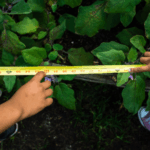
Female Genital Mutilation (FGM) in early years
Find out what FGM is, why it happens and what to do if any children in your early years setting are affected.
What is Female Genital Mutilation (FGM)?
FGM is a collective term for procedures that include the removal or partial removal of the external female genitalia for non-medical purposes. It is sometimes referred to as ‘cutting’, ‘initiation’ or ‘female circumcision’ and has been illegal in the UK since 1985.
Procedures are usually carried out by a female member of a girl’s family or extended family using a sharp implement, e.g. glass, knife or scissors; sometimes the same implement is used on more than one girl at the same time. It’s sometimes carried out on a girl without the mother’s consent or knowledge too.
It is extremely painful and can have serious ongoing physical and emotional health consequences. It is considered to be a form of child abuse under the areas of physical abuse and emotional abuse.
Why does Female Genital Mutilation happen?
FGM isn’t linked to any religious expectations – it is a culture-specific practice and social norm practiced by families for a number of reasons, most often thought to be essential for a girl to become a ‘proper woman’ and to be ‘marriageable’.
There are tensions for families living in the UK that are from countries where FGM is common practice and perceived as a part of being female.
Some may justify Female Genital Mutilation for reasons of tradition, family honour, hygiene or fear of exclusion from their communities.
While respect for family culture and tradition is important, cultural considerations and sensitivities should not override the requirement to take action to protect a child in your setting.
What should you do if you discover a girl at your nursery has undergone an FGM procedure?
It is essential that a child protection referral is made in accordance with your local authority procedures. If the situation is an emergency, you must contact the police immediately.
If you suspect the FGM procedure has been performed on a girl under 18 years old, or if she discloses FGM has been carried out, the legislation requires you to report it. Remember this could be a child at your nursery but also a member of staff.
Use the following guidelines to support you:
- Report the incident to the police force in the area in which the girl lives
- Use the non-emergency 101 telephone number (but in the case of an emergency ring 999)
- Be ready to explain that you are making a report under the FGM mandatory reporting duty
- Make a child protection referral following your usual referral process as required by your nation’s guidance
- As with any other child protection referral, keep accurate and comprehensive records throughout the process
- If the reporting is not carried out by your setting’s designated safeguarding lead you should ensure that they are kept up-to-date with reports, records and advice from the police or children’s services.
Looking for more support on protecting your nursery children from FGM?
See our online, live virtual or face to face safeguarding and child protection courses.
- Safeguarding
Similar Articles
Top tips: Using mathematical language everyday with young children

Early years activity: Non-standard measures


